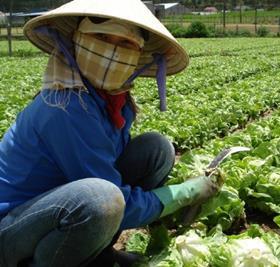
The development of urban horticultural areas is being held up as a way for cities to tackle poverty in the face of large-scale migration from poor rural areas.
The United Nations’ Food and Agriculture Organisation (FAO) has said in a statement that urban and semi-urban horticulture could help steer urbanisation from its current, unsustainable path, towards greener cities that offer their inhabitants choice, opportunity and hope.
“Growing fruit and vegetables, the richest natural sources of micro-nutrients, in and around cities increases the supply of fresh, nutritious produce and improves the urban poor's economic access to food,” the statement said.
Director of the FAO’s plant production and protection division Shivaji Pandey, said urban horticulture offers a pathway out of poverty with its low start-up costs, short production cycles and high yields per unit of time, land and water.
The organisation estimated that by 2025, more than half the developing world's population - an estimated 3.5bn people - will live in urban areas.?
The FAO said governments in 20 countries had sought its assistance over the past decade in removing barriers and providing incentives, inputs and training to low-income city gardeners.?
It has also provided tools, seeds and training to establish thousands of school gardens, a proven means of promoting child nutrition, in more than 30 countries, it added.






No comments yet